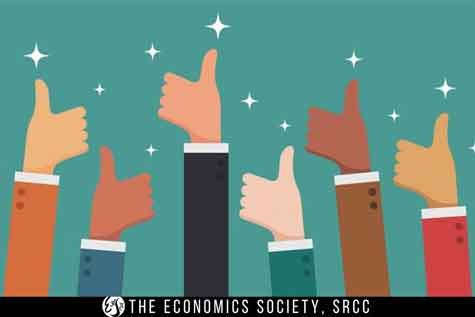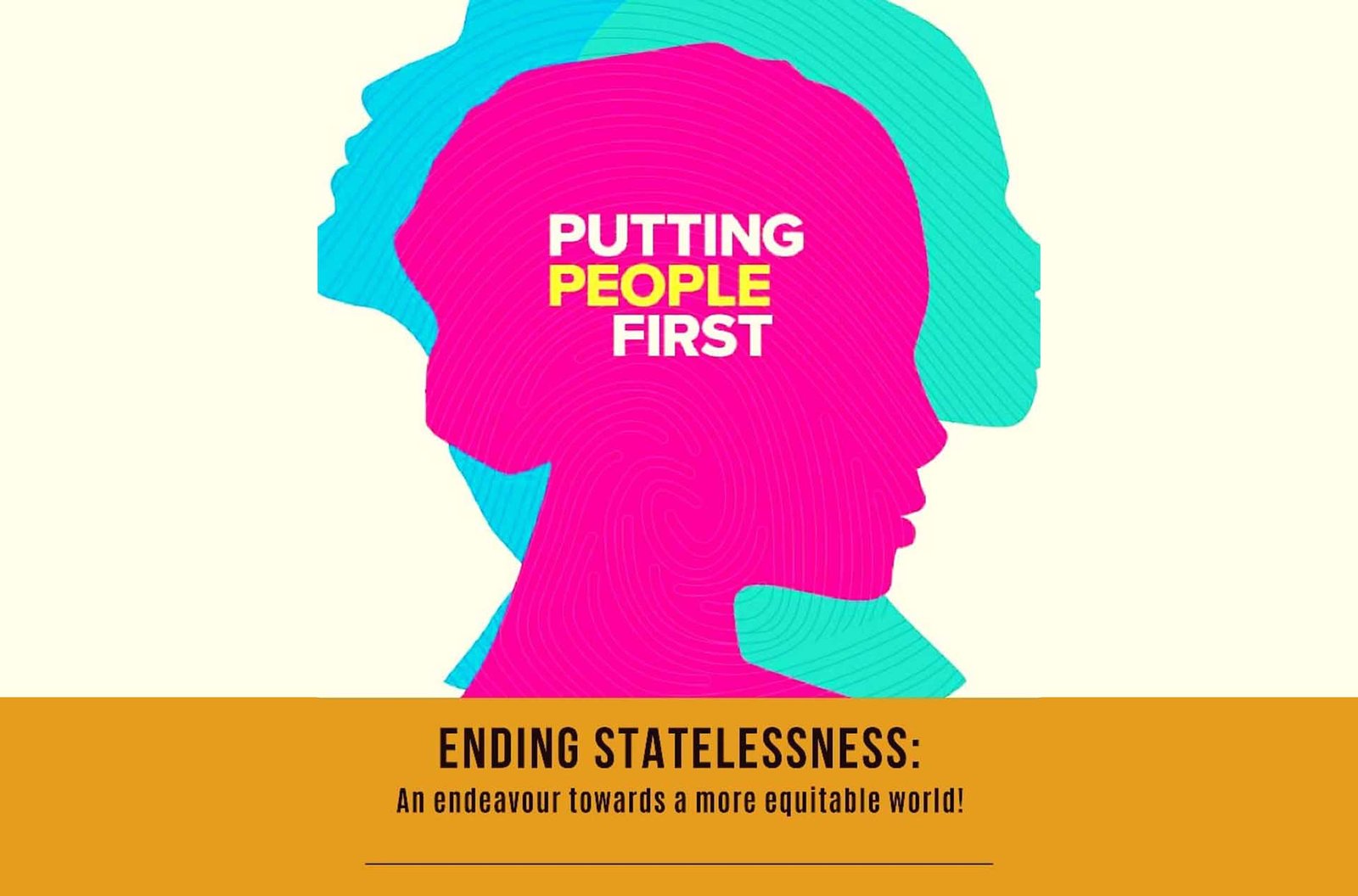
Published in:
Politics
Agree To Disagree- Where Do We Stand?

For any institution or idea to be strong and flawless, disagreements are a prerequisite and their expression -an art. They are the means, which set us apart, broaden our perspectives, bring to light a plethora of unnoticed discrepancies and provide a base for discussions and deliberations that essentially make our democracies real.
Disagreements were the bridge through which many eminent personalities covered the gigantic distance between slavery and freedom, writing stories of hope and courage for the generations to look up to in the future. From scientific maestros such as Galilieo to the revolutionary leaders like Mahatma Gandhi and Nelson Mandela; a common link that made them, who they are and served as the foundation stone of their endeavors was a clear expression of Disagreement.
Today, as citizens of vibrant democracies of the 21st century, we are in a terrible state. The D in Democracy which was touted to be standing for ‘Disagreement-friendly’ seems to have lost its sheen. We have rights and laws that should strengthen our resolve to openly disagree but this is quite afar from the actual reality. Right to speech essentially considered as the Right to disagree is a powerful instrument, but how far Or rather, how well are we allowed to use it? The answer paints a resentful picture.
The art of disagreement is dying. One may ask, WHY?. This puzzle can be looked upon, as having two aspects- the lack of willingness to disagree and unfavourable manner and consequences of expression.
Let us suppose a situation wherein John an 11th grade student was working on a group project along with four other peers. While ideating upon the topic of the project, one of them came up with an idea and was able to convince others on it. John however had some inhibitions regarding the same but he agreed with the majority, thinking about the amount of work he would have to put in to bring forward and explain his disagreement.
The cause behind the general tendency to be a spectator rather than a leader is linked to how a person thinks. In a case of choosing between agreeing and disagreeing, more often than not, agreement emerges as the ‘easy way out’. The alternative that requires the least amount of hardship or effort but does not necessarily give the best results or meaningful angles is termed as the ‘Easy Way Out’. However, the opportunity cost of indulging in this turns out to be quite high resulting in loss of valuable opinions, growth, and individuality along with robbing a person off from one of the most crucial skills of life i.e. Critical Thinking. Developing a critical mindset that is able to reason analytically and logically, weighing in all the pros and cons is an invaluable asset. And in the case when a person decides not to disagree, he/she/ they also take away the opportunity from the other stakeholders to think critically about a given situation.
While what happened in John’s scenario was an example of choosing an easy way out, the impact of BANDWAGON EFFECT can not be ignored. The bandwagon effect is a term used to describe the tendency of people to adopt methods or opinions simply because others are doing so. If other people are agreeing to something, more often than not we end up doing the same neglecting the counter voices that might otherwise arise in our head.
Limiting ourselves to a scenario where disagreements are simply not expressed would be an injustice to the issue at hand. The second aspect deals with the unfavourable consequences of voicing counter-opinions, through, both traditional(News houses) and modern(Social media) mediums.
Pertaining to this, a recent event flashes in mind. Comedian Vir Das released a monologue titled ‘Two India’, to much critical acclaim, that he termed as a ‘satire about the duality of two very separate Indias’ and expressed his disagreements towards the way certain things are carried out., The important fact here is not whether Vir Das was correct, or erroneous; rather, the immense backlash and derogatory comments he had to face for merely voicing out an opinion that was contrary to popular belief. This is a case of extensive concern when instead of listening and introspecting, people don’t take criticism in their stride. It leads to a situation where there exists no space for disagreements. The idea of two opposite schools of thought co-existing, seems to lose its ground and the philosophy of ‘agree to disagree’ is confined to theoretical realms.
This was an instance when disagreements were expressed in a manner ticking all the checkboxes. Where adequate reasoning was involved, the manner was peaceful and the opinion held ground. The kind of scrutiny and harsh treatment that the expresser had to bear particularly, did little to encourage other people to do the same.
So how can the dying art of disagreement be revived? A major part of the answer to this question lies in how we allow our brains to function and lend our part in creating an environment that is both safe and accommodative. There is a need for us to become better speakers as well as better listeners. We need to acknowledge the fact that things are not always black and white but there exists a gray area. We need to absolve ourselves of the deep entrenched dichotomous view, that we hold of the world out there. Each individual is different and is bound to have a unique opinion. While we discuss, deliberate and debate upon issues that grapple us as a society or even on regular topics, someone’s disagreement with our manner of conduct or opinion does not amount to it being termed as wrong. It simply means that two people coming from two different places do not share a similar point of view. When we comprehend the fact that disagreements do not amount to disrespect and we are not being judged as wrong or right, is the time we’ll become truly accepting and allow the ideal of ‘Agree to Disagree’ to be a concrete reality.
Another way to approach the issue is to think of all the numerous theories that continue to coexist on the same topic in subjects such as Economics, the reason being a different set of assumptions, varied time periods and non-identical conditions when they were proposed or explored. Experts on these subjects have been working on them and continue to do so while giving due respect to the findings of others, creating ample room for an agreement to disagree to thrive. Had there been no disagreements at all and only the initially presented thesis was accepted, new theories would never have come up and the world would have failed to experience a number of phenomena and explanations, and evolve, as a result of this. This reiterates the dire need to disagree.
George Patton Jr. once said, “if everyone is thinking alike then somebody is not thinking”. A reflection upon these words makes one understand both the normalcy and importance of different opinions. For nations to develop, communities to grow and individuals to advance, the barriers of stagnation need to break and our mental horizons need to expand. For discourse to flourish, disagreements need to exist.
Ruchi Gupta
Second Year Undergraduate Student
Disagreements were the bridge through which many eminent personalities covered the gigantic distance between slavery and freedom, writing stories of hope and courage for the generations to look up to in the future. From scientific maestros such as Galilieo to the revolutionary leaders like Mahatma Gandhi and Nelson Mandela; a common link that made them, who they are and served as the foundation stone of their endeavors was a clear expression of Disagreement.
Today, as citizens of vibrant democracies of the 21st century, we are in a terrible state. The D in Democracy which was touted to be standing for ‘Disagreement-friendly’ seems to have lost its sheen. We have rights and laws that should strengthen our resolve to openly disagree but this is quite afar from the actual reality. Right to speech essentially considered as the Right to disagree is a powerful instrument, but how far Or rather, how well are we allowed to use it? The answer paints a resentful picture.
The art of disagreement is dying. One may ask, WHY?. This puzzle can be looked upon, as having two aspects- the lack of willingness to disagree and unfavourable manner and consequences of expression.
Let us suppose a situation wherein John an 11th grade student was working on a group project along with four other peers. While ideating upon the topic of the project, one of them came up with an idea and was able to convince others on it. John however had some inhibitions regarding the same but he agreed with the majority, thinking about the amount of work he would have to put in to bring forward and explain his disagreement.
The cause behind the general tendency to be a spectator rather than a leader is linked to how a person thinks. In a case of choosing between agreeing and disagreeing, more often than not, agreement emerges as the ‘easy way out’. The alternative that requires the least amount of hardship or effort but does not necessarily give the best results or meaningful angles is termed as the ‘Easy Way Out’. However, the opportunity cost of indulging in this turns out to be quite high resulting in loss of valuable opinions, growth, and individuality along with robbing a person off from one of the most crucial skills of life i.e. Critical Thinking. Developing a critical mindset that is able to reason analytically and logically, weighing in all the pros and cons is an invaluable asset. And in the case when a person decides not to disagree, he/she/ they also take away the opportunity from the other stakeholders to think critically about a given situation.
While what happened in John’s scenario was an example of choosing an easy way out, the impact of BANDWAGON EFFECT can not be ignored. The bandwagon effect is a term used to describe the tendency of people to adopt methods or opinions simply because others are doing so. If other people are agreeing to something, more often than not we end up doing the same neglecting the counter voices that might otherwise arise in our head.
Limiting ourselves to a scenario where disagreements are simply not expressed would be an injustice to the issue at hand. The second aspect deals with the unfavourable consequences of voicing counter-opinions, through, both traditional(News houses) and modern(Social media) mediums.
Pertaining to this, a recent event flashes in mind. Comedian Vir Das released a monologue titled ‘Two India’, to much critical acclaim, that he termed as a ‘satire about the duality of two very separate Indias’ and expressed his disagreements towards the way certain things are carried out., The important fact here is not whether Vir Das was correct, or erroneous; rather, the immense backlash and derogatory comments he had to face for merely voicing out an opinion that was contrary to popular belief. This is a case of extensive concern when instead of listening and introspecting, people don’t take criticism in their stride. It leads to a situation where there exists no space for disagreements. The idea of two opposite schools of thought co-existing, seems to lose its ground and the philosophy of ‘agree to disagree’ is confined to theoretical realms.
This was an instance when disagreements were expressed in a manner ticking all the checkboxes. Where adequate reasoning was involved, the manner was peaceful and the opinion held ground. The kind of scrutiny and harsh treatment that the expresser had to bear particularly, did little to encourage other people to do the same.
So how can the dying art of disagreement be revived? A major part of the answer to this question lies in how we allow our brains to function and lend our part in creating an environment that is both safe and accommodative. There is a need for us to become better speakers as well as better listeners. We need to acknowledge the fact that things are not always black and white but there exists a gray area. We need to absolve ourselves of the deep entrenched dichotomous view, that we hold of the world out there. Each individual is different and is bound to have a unique opinion. While we discuss, deliberate and debate upon issues that grapple us as a society or even on regular topics, someone’s disagreement with our manner of conduct or opinion does not amount to it being termed as wrong. It simply means that two people coming from two different places do not share a similar point of view. When we comprehend the fact that disagreements do not amount to disrespect and we are not being judged as wrong or right, is the time we’ll become truly accepting and allow the ideal of ‘Agree to Disagree’ to be a concrete reality.
Another way to approach the issue is to think of all the numerous theories that continue to coexist on the same topic in subjects such as Economics, the reason being a different set of assumptions, varied time periods and non-identical conditions when they were proposed or explored. Experts on these subjects have been working on them and continue to do so while giving due respect to the findings of others, creating ample room for an agreement to disagree to thrive. Had there been no disagreements at all and only the initially presented thesis was accepted, new theories would never have come up and the world would have failed to experience a number of phenomena and explanations, and evolve, as a result of this. This reiterates the dire need to disagree.
George Patton Jr. once said, “if everyone is thinking alike then somebody is not thinking”. A reflection upon these words makes one understand both the normalcy and importance of different opinions. For nations to develop, communities to grow and individuals to advance, the barriers of stagnation need to break and our mental horizons need to expand. For discourse to flourish, disagreements need to exist.
Ruchi Gupta
Second Year Undergraduate Student


